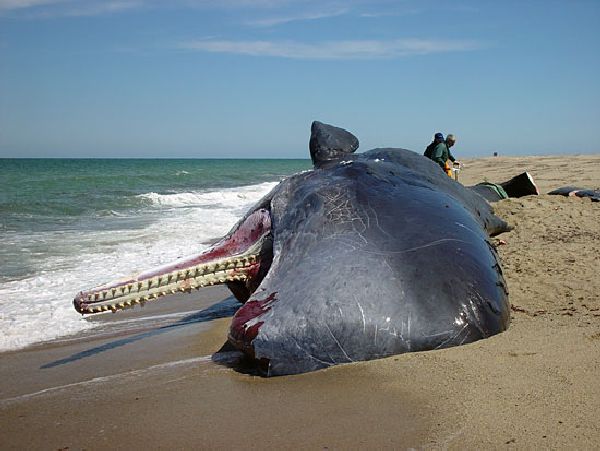
Beached Whales, Why?
Whales
Why Do They Get Beached?
Ever heard of cetacean stranding? It’ the technical term for the act of whales being stranded on land, usually on a beach. After a whale is beached, it usually dies because of dehydration, collapsing under its own weight or when the high tide covers the blowhole and drowns it.
So why do whales get beached? There are many theories as to why that happens. Here are three of the most common explanations:
Environmental factors
A lot of instances of whales being beached can be linked to environmental and natural factors. These can include rough weather, problem giving birth, navigation issues, weakness caused by infection or old age and hunting too close to the beach. Sometimes predators like killer whales cause other whales to panic, pushing them towards the shore.
“Follow-me beaching”
Sometimes larger whales get beached as they follow dolphins into shallow waters near the beach. Chasing dolphins, who are faster than the whales, can become a habit which increases the odds of whales getting beached as the tidal flow and seabed structure traps these larger sea creatures.
Sonar
Sonar activation can also lead to beaching as it can cause internal injuries in the whales, messing up their steering. The mid-frequency sonar used by the U.S. Navy for detecting submarines can effect melon-headed and beak nosed whales in particular. Low frequency active sonar, also used by the U.S. Navy, is loud enough to kill whales and have caused mass beachings.
Whales might be the largest mammals in the world today. But as you can see, natural and man-made forces can cause even them to lose control and land up helplessly on the beach, outside the deep sea that is their home.
Why do whales beach themselves?
Fatima M.
Freelance Blogger



Follow Us!